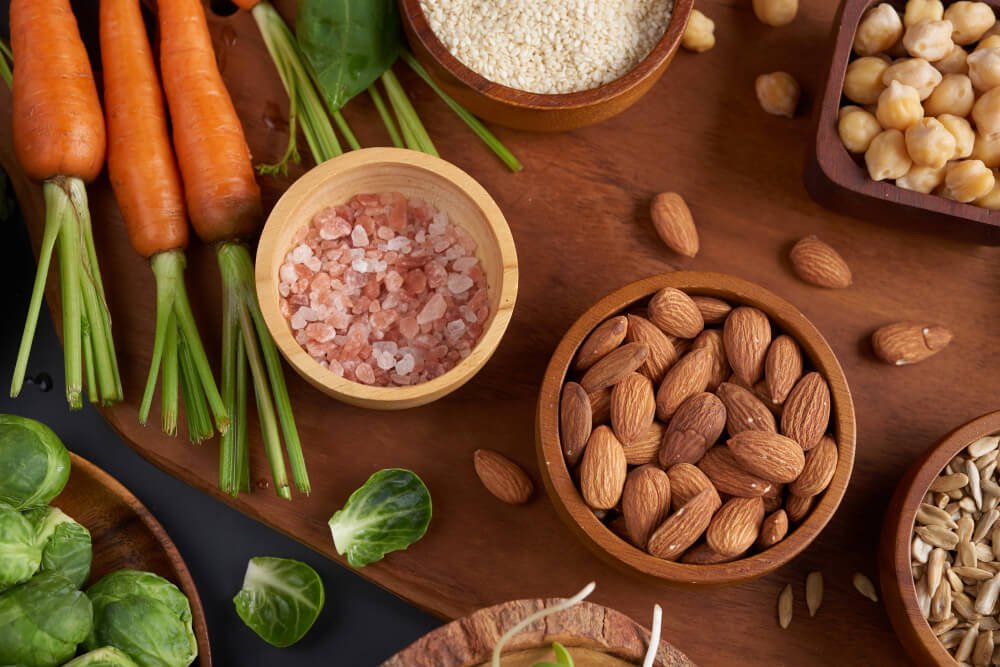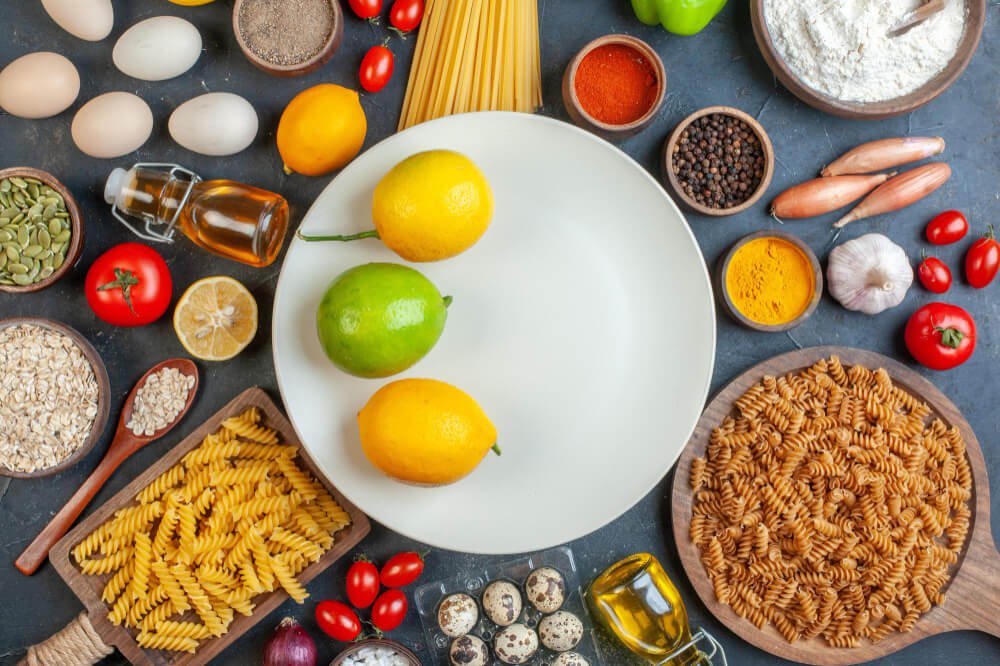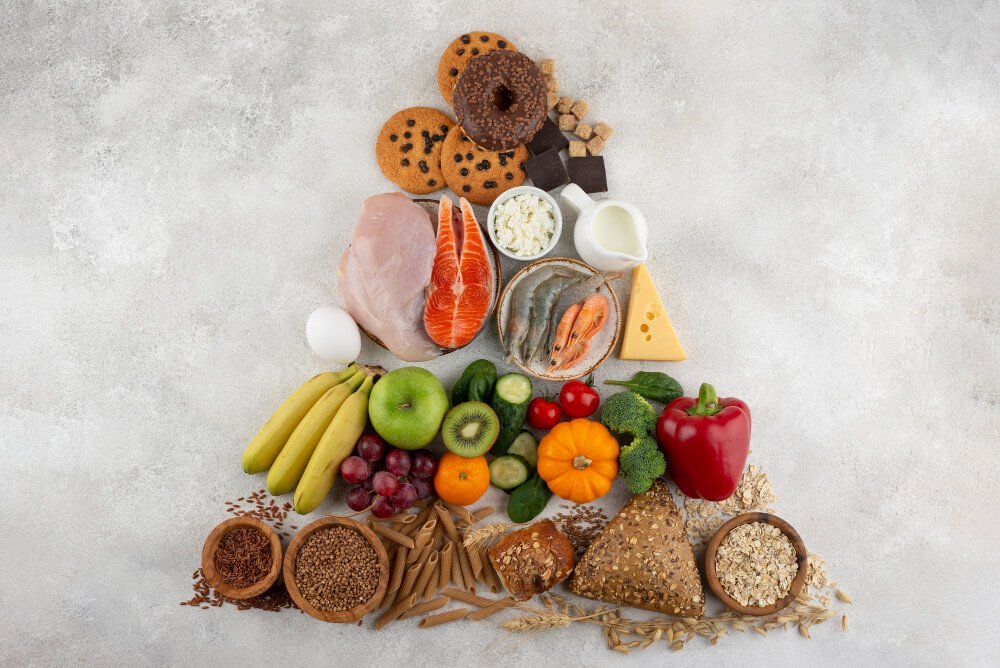Plant-Based Protein Sources for Vegetarians and Vegans

Choosing to follow a vegetarian or vegan diet is a commendable lifestyle choice, often made for health, environmental, or ethical reasons. One common concern, however, is ensuring you get enough protein. Protein is essential for building and repairing tissues, making enzymes and hormones, and supporting overall health. While many people associate protein with animal products, there are plenty of plant-based sources that can help meet your protein needs. Let’s explore some of the best plant-based protein sources for vegetarians and vegans.
The Importance of Protein in Your Diet
Before we dive into specific protein sources, it’s important to understand why protein is vital for your health. Protein is made up of amino acids, which are the building blocks of your body. There are 20 different amino acids, and nine of these are considered essential, meaning your body can’t make them on its own. Therefore, you need to get them from your diet.
Protein helps in:
- Building and repairing tissues: This includes muscles, skin, and internal organs.
- Making enzymes and hormones: These are crucial for various bodily functions, including metabolism and mood regulation.
- Supporting immune function: Protein is essential for making antibodies and other components of the immune system.
Now, let’s explore some fantastic plant-based protein sources that can help vegetarians and vegans meet their protein requirements.
Legumes: The Protein Powerhouses
Legumes are a staple in many vegetarian and vegan diets for good reason. They are not only rich in protein but also high in fiber, vitamins, and minerals. Here are some legumes you should consider:
Lentils
Lentils are incredibly versatile and can be used in soups, stews, salads, and even as a base for veggie burgers. Just one cup of cooked lentils provides about 18 grams of protein. They are also high in iron and folate, making them an excellent choice for vegetarians and vegans.
Chickpeas
Chickpeas, or garbanzo beans, are another protein-rich legume. One cup of cooked chickpeas contains around 15 grams of protein. They can be roasted for a crunchy snack, mashed into hummus, or added to salads and stews.
Black Beans
Black beans are a fantastic addition to your diet, offering about 15 grams of protein per cooked cup. They are also rich in antioxidants, which can help protect your cells from damage. Black beans work well in soups, salads, and burritos.
Nuts and Seeds: Small but Mighty
Nuts and seeds may be small, but they pack a powerful protein punch. They are also high in healthy fats, which are essential for heart health.
Almonds
Almonds are a delicious and convenient snack. Just a quarter cup of almonds provides about 7 grams of protein. They are also rich in vitamin E, which is great for your skin and immune system.
Chia Seeds
Chia seeds are a true superfood, offering 4 grams of protein per two tablespoons. They are also high in omega-3 fatty acids and fiber, which can help support heart and digestive health. Add them to smoothies, yogurt, or make a chia seed pudding.
Hemp Seeds
Hemp seeds are one of the best plant-based protein sources, with about 10 grams of protein per three tablespoons. They are also a complete protein, meaning they contain all nine essential amino acids. Sprinkle them on salads, oatmeal, or blend them into smoothies.
Whole Grains: More Than Just Carbs
Whole grains are often overlooked as a protein source, but they can be a significant part of a vegetarian or vegan diet.
Quinoa
Quinoa is a fantastic grain because it’s a complete protein, providing all nine essential amino acids. One cup of cooked quinoa has about 8 grams of protein. It’s also rich in fiber, iron, and magnesium. Use quinoa as a base for salads, bowls, or as a side dish.
Brown Rice
While not as high in protein as some other sources, brown rice still provides a decent amount, with about 5 grams per cooked cup. Pair it with beans or lentils for a protein-packed meal.
Oats
Oats are not just for breakfast. They offer about 6 grams of protein per cup when cooked. They are also a great source of soluble fiber, which can help lower cholesterol levels. Enjoy oats as oatmeal, in smoothies, or baked into healthy snacks.
Soy Products: Versatile and Protein-Rich
Soy products are incredibly versatile and are often used as meat substitutes. They are also excellent sources of protein.
Tofu
Tofu, also known as bean curd, is made from soy milk and is a complete protein. One cup of tofu can contain up to 20 grams of protein. It’s incredibly versatile and can be used in savory and sweet dishes alike.
Tempeh
Tempeh is a fermented soy product that has a firm texture and a nutty flavor. It’s packed with protein, offering around 21 grams per cup. The fermentation process also makes it easier to digest and adds a boost of probiotics, which are great for gut health. Tempeh can be grilled, sautéed, or added to stir-fries and salads.
Edamame
Edamame are young, green soybeans that are often enjoyed as a snack or appetizer. A cup of cooked edamame provides about 17 grams of protein. They are also rich in fiber, vitamins, and minerals. Simply steam them and sprinkle with a bit of salt for a tasty treat.
Vegetables: Surprising Sources of Protein
While vegetables are not typically known for their protein content, some do offer a decent amount and can contribute to your overall intake.
Spinach
Spinach is not only rich in iron but also provides a good amount of protein. One cooked cup of spinach offers about 5 grams of protein. Add spinach to smoothies, salads, or sauté it as a side dish.
Broccoli
Broccoli is another vegetable that is surprisingly high in protein, with about 4 grams per cooked cup. It’s also high in vitamin C, which helps boost your immune system. Enjoy broccoli steamed, roasted, or added to stir-fries.
Brussels Sprouts
Brussels sprouts are not only delicious when roasted but also pack about 4 grams of protein per cooked cup. They are also high in fiber and antioxidants. Try them roasted with a drizzle of olive oil and a sprinkle of salt for a tasty side dish.
Protein-Rich Snacks and Supplements
In addition to whole foods, there are also convenient snacks and supplements that can help you meet your protein needs.
Protein Bars
Many protein bars are specifically designed for vegetarians and vegans. Look for those made with plant-based proteins like pea protein, rice protein, or soy protein. These can be a convenient way to get a protein boost on the go.
Protein Powders
Protein powders are a popular choice for those looking to increase their protein intake. Plant-based options include pea protein, hemp protein, and brown rice protein. These can be easily added to smoothies, oatmeal, or baked goods.
Nutritional Yeast
Nutritional yeast is a deactivated yeast that is often used as a cheese substitute due to its savory, umami flavor. It’s also high in protein, providing about 8 grams per two tablespoons. Sprinkle it on popcorn, pasta, or salads for a protein boost.
Combining Protein Sources for Complete Nutrition
To ensure you’re getting all essential amino acids, it’s important to combine different protein sources throughout the day. This is especially crucial for those who rely solely on plant-based proteins, as most plant sources are not complete proteins on their own.
Rice and Beans
One classic combination is rice and beans. While rice is low in the amino acid lysine, beans are high in it. Together, they form a complete protein. This duo can be enjoyed in various dishes, from burritos to casseroles.
Hummus and Whole Wheat Pita
Hummus, made from chickpeas, pairs perfectly with whole wheat pita bread. The chickpeas provide protein and fiber, while the whole wheat pita adds additional protein and complex carbohydrates. This makes for a satisfying and nutritious snack or light meal.
Peanut Butter on Whole Grain Bread
Peanut butter is another great source of protein, and when spread on whole grain bread, it becomes a complete protein meal. This combination is perfect for a quick and easy snack that is both tasty and filling.
Planning Your Meals for Optimal Protein Intake
Incorporating a variety of plant-based protein sources into your daily diet can ensure you’re meeting your nutritional needs. Here are some tips for planning your meals:
- Breakfast: Start your day with a protein-packed breakfast. Try oatmeal with chia seeds and almond butter or a smoothie with protein powder and spinach.
- Lunch: Make a hearty salad with quinoa, black beans, and a variety of veggies, or enjoy a lentil soup with whole grain bread.
- Dinner: Opt for a stir-fry with tofu, tempeh, or edamame, along with a mix of colorful vegetables and a side of brown rice.
- Snacks: Keep protein-rich snacks on hand, such as nuts, seeds, and protein bars, to keep you energized throughout the day.
By diversifying your protein sources and planning your meals thoughtfully, you can enjoy a balanced and nutritious vegetarian or vegan diet that supports your health and wellness.
Conclusion
Meeting your protein needs on a vegetarian or vegan diet is entirely possible with a bit of planning and variety. From legumes and nuts to whole grains and soy products, there are plenty of delicious and nutritious plant-based protein sources to choose from. Incorporating a mix of these foods into your daily meals will help ensure you get all the essential amino acids and maintain a healthy, balanced diet. So go ahead and explore these plant-based protein options, and enjoy the journey to better health and well-being!



